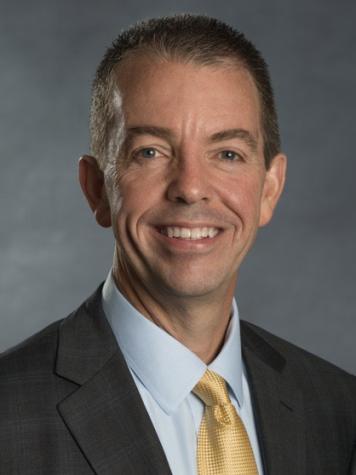By Marshall Stewart, chief engagement officer, University of Missouri System, and MU vice chancellor for extension and engagement.
In a state where agriculture is the No. 1 industry, Missouri can be a powerful leader in making sure every Missourian is food secure. At its core, food security means no child goes to bed hungry and no adult must choose between buying needed medicine and putting food on the family table.
In October, the University of Missouri System hosted its 2022 Extension and Engagement Week. Each year, MU with its university partners and stakeholders across the state focus on big challenges to improve Missourians’ lives. In the past, we’ve addressed rural broadband access, workforce development and health access and equity need. Initiatives with real-world impact emerge from these weeklong “deep dives.” This year, we focused on food.
We looked at the challenges, issues and opportunities around food systems, including production, distribution, value-added agriculture, nutrition and access — all so vital to every one of us and our planet’s health.
At the heart of this complex network is food security: How can we work together to ensure that people everywhere have enough to eat to be healthy and contributing members of society? Even here, in one of our nation’s top food-producing states, 11.4% of all Missourians are food insecure, including 14.1% of children. In some counties, one out of every three children have need.
You cannot have a truly thriving economy at any level; you will not have educational excellence at any level; and you will not have good health at any level if people are food insecure.
There is no one solution for these issues. It will take all of us to find answers.
To that end, the Food Systems Network at the MU Interdisciplinary Center for Food Security is helping to connect a diverse array of partners to help build strong and resilient community-based food systems across Missouri and beyond. They welcome your input.
Resources like the interactive All Things Food Story Map help us better understand Missouri’s food systems and their links to food insecurity. The Missouri Hunger Atlas helps pinpoint, down to the census tract level, the extent of food insecurity in all 114 Missouri counties and the City of St. Louis.
MU and its partners are also taking action.
• A new statewide food systems faculty position will help identify and coordinate partners and interdisciplinary work to address Missouri food system challenges.
• Our fourth annual 4-H Feeding Missouri Food Drive — with Feeding Missouri and Missouri Farmers Care Drive to Feed Kids — seeks to raise the equivalent of 800,000 meals by May 1, 2023, through food and monetary donations and volunteer hours.
• Missouri 100, an advisory group to UM System leadership, will donate $10,000 to each of the UM System’s four campus food pantries for students. This gift, along with Hogs for Hunger donations from this year’s Missouri State Fair, gets the 4-H Feeding Missouri drive more than halfway to its goal.
• Finally, thanks to state government leaders’ investment in MU Extension, we have the support to fill about 80 open positions that are at various stages of the recruiting process. Nearly all will be for county positions in 4-H Youth Development, Nutrition and Health, Human Development, Livestock, Agronomy, Dairy, Horticulture, Agricultural Engineering, Natural Resources, Community Health and Labor and Workforce Development.
We are excited about this growth. Please share these job postings at muext.us/careers. We need qualified and dedicated people to join our team.
Whether we are addressing broadband access, workforce development needs, health equity or nutrition and food security for all, our university’s land-grant mission inspires us to empower people and communities across Missouri, our nation and our globe. It’s how we best Serve Missouri and Deliver Mizzou.
